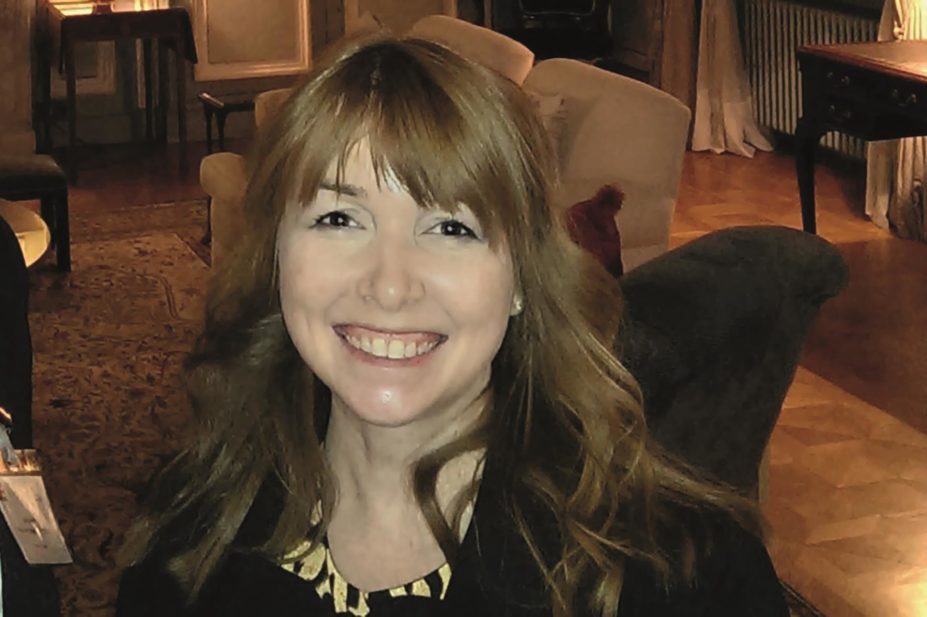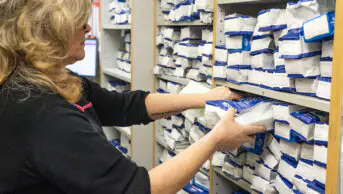
What is your current role and how did you get there?
After graduating from Aston University in 1989, my principal career intention was to connect pharmacy practice with scientific research. Initially, I combined part-time postgraduate training with pharmacy roles in community and hospital pharmacy. When I took a position as research assistant at the Drug Safety Research Unit (DSRU), an independent academic charity, I became interested in pharmacoepidemiology, the study of the uses and effects of drugs in defined populations.
My main responsibility as principal research fellow at the DSRU is to lead the development of observational post-authorisation safety studies (PASS) for new drugs or licence extensions of existing treatments. These studies are used to support risk management plans and may gather additional information on known risks, or new information on unknown hazards in particular groups of patients. Often, innovative approaches may be required — for example, recently we had to define hard-to-measure outcomes, such as misuse and suicidality. I also lead initiatives that explore new study methods.
What do you enjoy most about your work and which achievement are you most proud of?
The most enjoyable aspect of my work is working with a multidisciplinary team to convert a PASS protocol into a pragmatic workable study that will provide useful and clinically meaningful data. In this regard I am most proud of my contributions to two aspects of DSRU research.
Firstly, I helped to enhance the way that data collected via the safety monitoring surveillance system — Modified Prescription Event-Monitoring (M-PEM) — are analysed using advanced statistical methods. M-PEM uses dispensed prescription information to capture data about when a new drug is started, while patient characteristics and events, including adverse drug reactions, are collected via paper questionnaires sent to the prescribers.
The second is extending the principle of event monitoring systematically into hospitals. This approach is named Specialist Cohort Event-Monitoring (SCEM). The methods of M-PEM and SCEM are now mentioned in the European guidelines for pharmacovigilance as study designs that can be used for PASS.
What is the most challenging part of your current role?
Pharmacists already play important roles in influencing drug policy, monitoring use and safety of medicines in collaboration with other healthcare professionals. I am keen to explore how pharmacists can develop their existing roles to improve their contribution to pharmacoepidemiological research and support pharmacovigilance. Therefore, one of the most challenging parts of my current role is to identify enthusiastic pharmacists willing to support such research and new ways of working.
It is also challenging to continue to demonstrate mastery of pharmacoepidemiology, so undertaking continuing professional development has been essential. This is because pharmacoepidemiology as a science has been evolving rapidly, partly to meet the needs of changing pharmacovigilance requirements.
What advice do you have for another pharmacist interested in pursuing a career in pharmacovigilance?
In 2008, I was involved in establishing an MSc collaborative programme in pharmacovigilance at the University of Portsmouth. Since then, there has been interest from pharmacists who want to make the transition from community or hospital pharmacy to pharmacovigilance roles within a pharmaceutical company or regulatory agency. Following new pharmacovigilance legislation in Europe in 2010, guidelines on good pharmacovigilance practice were introduced to harmonise the introduction of new medicines and strengthen systems to monitor their use and safety post-marketing. This has opened up other career avenues that I would recommend pharmacists consider. This may include working as a drug safety scientist processing reports of suspected adverse drug reactions or being an assessor of pharmacovigilance compliance requirements, supporting or leading teams responsible for global use of individual products.
I recognised early in my career that I needed to develop my personal and professional competence as an expert specialist pharmacist practitioner in pharmacoepidemiology in order to meet the growing expectations of the pharmaceutical industry, regulators, clinical leaders and other pharmacoepidemiologists. The journey has been long and hard — I have completed several programmes of postgraduate training in epidemiology, pharmacoepidemiology, statistics and teaching. These courses enabled me to progress to my current role, so I believe any pharmacist considering entering this discipline should consider undertaking postgraduate foundation courses.


